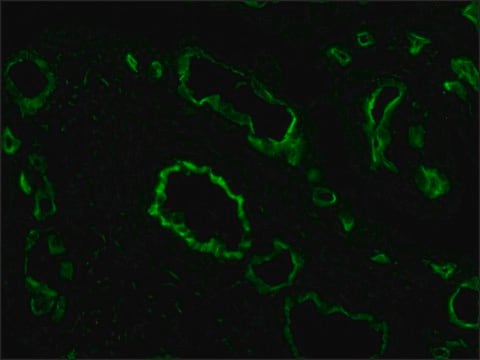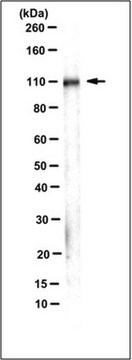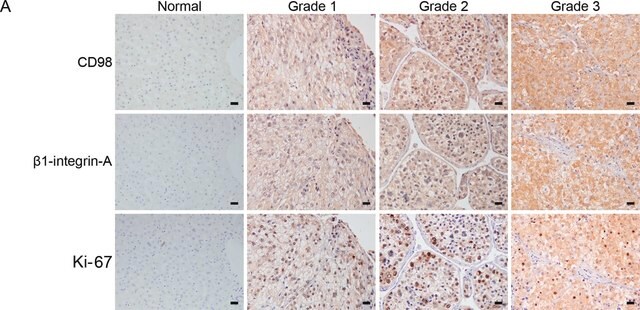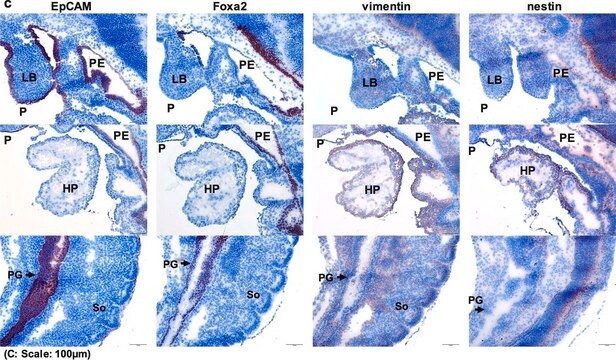MABT27
Anti-LIBS2 epitope (Integrin beta3 subunit) Antibody, clone ab62
clone ab62, from mouse
Sinónimos:
LIBS2 domain, Integrin, Integrin alphaVbeta3, LIBS2 epitiope
About This Item
Productos recomendados
biological source
mouse
Quality Level
antibody form
purified immunoglobulin
antibody product type
primary antibodies
clone
ab62, monoclonal
species reactivity
human
technique(s)
flow cytometry: suitable
western blot: suitable
isotype
IgG2aκ
shipped in
wet ice
target post-translational modification
unmodified
Gene Information
human ... ITGB3(3690)
General description
Clone Ab62 is a monoclonal antibody that specifically recognizes the LIBS2 epitope in the C-terminal region of the extracellular domain of the beta3 subunit (Wiberzbicka-Patynowski, I., et al. (1999). JBC. 274(53):37809-37814).
Specificity
Immunogen
Application
Cell Structure
Integrins
Quality
Western Blot Analysis: 0.5 µg/mL of this antibody detected LIBS2 domain of integrin beta3 subunit in 10 µg of human platelets cell lysate.
Target description
Other MW bands may vary or may be observed depending on lysate used and if the LIBS2 epitope is present in other proteins.
Physical form
Storage and Stability
Analysis Note
Human platelets cell lysate
Other Notes
Disclaimer
¿No encuentra el producto adecuado?
Pruebe nuestro Herramienta de selección de productos.
Storage Class
12 - Non Combustible Liquids
wgk_germany
WGK 1
flash_point_f
Not applicable
flash_point_c
Not applicable
Certificados de análisis (COA)
Busque Certificados de análisis (COA) introduciendo el número de lote del producto. Los números de lote se encuentran en la etiqueta del producto después de las palabras «Lot» o «Batch»
¿Ya tiene este producto?
Encuentre la documentación para los productos que ha comprado recientemente en la Biblioteca de documentos.
Nuestro equipo de científicos tiene experiencia en todas las áreas de investigación: Ciencias de la vida, Ciencia de los materiales, Síntesis química, Cromatografía, Analítica y muchas otras.
Póngase en contacto con el Servicio técnico







